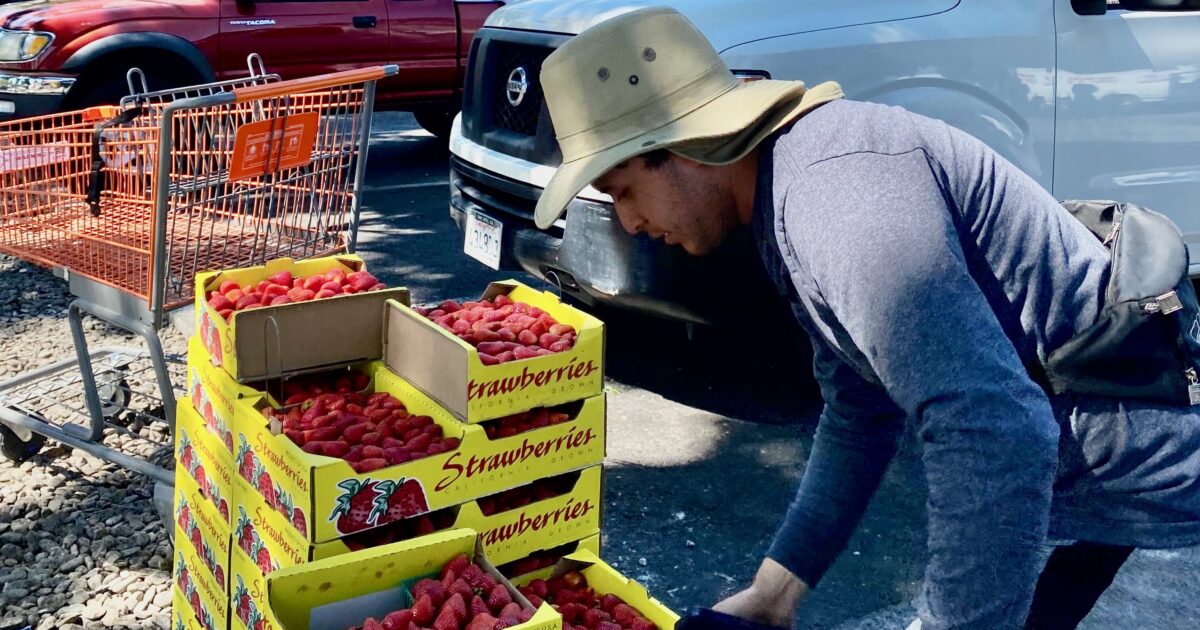Immigrants selling food, flowers and other merchandise along the sidewalks of California will have new privacy protections intended to keep their identities secret from federal immigration agents.
The measure, signed into law this past week by Democratic Gov. Gavin Newsom, comes on the heels of other recently enacted state laws meant to shield students in schools and patients at health care facilities from the reach of President Donald Trump’s immigration enforcement actions.
California is shielding immigrant information
Immigrants comprise a significant portion of California’s urban sidewalk vendors. Some have been swept up in immigration enforcement actions, in part, because their outdoor work in public places makes them easier targets than people behind closed doors.
Yet years before the Trump Administration took office and began its deportation program, street vendors in San Jose experienced problems with racism and violence. The San Jose City Council discussed ways to protect street vendors, since they often stayed silent due to fears related to immigration status or whether they had the necessary permits to operate legally.
While San Jose has worked to train street vendors through resource fair workshops to empower them to stay safe and grow their business, illicit vendors have grown in the city, especially during events. This has resulted in business complaints and the San Jose Police Department impounding unlicensed street vendor property. The City Council also approved a policy for stricter permitting rules.
California’s street vendors typically need permits from cities or counties. The new law prohibits local governments from inquiring about vendors’ immigration status, requiring fingerprinting or disclosing personal information — name, address, birth date, social media identifiers and telephone, driver’s license and Social Security numbers, among other things — without a judicial subpoena.
 San Jose holds resource fair for street vendors July 31, 2023 that included three workshops to empower vendors to stay safe and grow their business. Photo courtesy city of San Jose.
San Jose holds resource fair for street vendors July 31, 2023 that included three workshops to empower vendors to stay safe and grow their business. Photo courtesy city of San Jose.
The law, which will take effect Jan. 1, was prompted by concerns that vendor databases kept by local governments could be accessed by federal immigration agents to target people for detention and deportation.
“We’re talking about really security –- security for businesses, security for human beings, security for people who have gone through so much,” said Sergio Jimenez, a street vending organizer with the nonprofit Community Power Collective in Los Angeles.
Additional laws recently signed by Newsom add immigration status to a list of protected medical information and prohibit schools from granting access to immigration enforcement officials without a court warrant. Another new California law directs schools and higher education institutions to immediately notify staff and students or parents when immigration officials are on campus.
Across the U.S, state lawmakers this year have passed more than 100 bills relating to immigration, according to an Associated Press analysis aided by the bill tracking software Plural. The measures are divided almost evenly between those providing and denying protections to immigrants.
Democratic states create safe places for immigrants
Upon taking office, Trump reversed a policy restricting federal immigration agents from arresting people at sensitive locations such as schools, churches and hospitals. Like California, other Democratic-led states responded with laws attempting to create safe places for immigrants.
A Maryland law enacted earlier this year requires public schools, libraries and health care facilities to restrict access for immigration enforcement officials unless presented with a court warrant. Nevada’s Republican governor vetoed a similar measure for schools that had been passed by the Democratic-led Legislature.
Meanwhile, a new Colorado law allows civil penalties of up to $50,000 for public child care centers, schools, colleges, health care facilities and libraries that collect information about people’s immigration status, with some exceptions. New laws in Rhode Island prohibit health care providers and landlords from inquiring about people’s immigration status. Oregon also enacted a similar law for landlords.
States split on aiding federal immigration agents
By contrast, Republican-led states have passed numerous laws intended to bolster Trump’s immigration policies.
New laws in Texas, Florida and Arkansas require sheriffs who run jails to enter into federal agreements for their officers to be trained to help U.S. Immigration and Customs Enforcement. State and local participation in the federal 287(g) immigration enforcement program — named after the section of law that created it — has exploded from 135 agreements in 21 states before Trump took office in January to more than 1,000 agreements presently in place in 40 states.
But some Democratic-led states have refused to take part. A new Delaware law prohibits participation in the program, similar to statutes already in place in California and Illinois. Democratic-led Vermont also tightened its restrictions on participating in federal immigration enforcement programs, repealing an exemption that had allow it during emergencies.
San José Spotlight contributed to this story.

